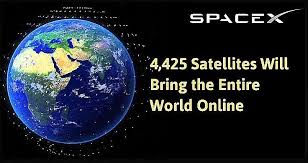
Breaking News
 Palantir kills people? But Who's Really Pushing the Buttons?
Palantir kills people? But Who's Really Pushing the Buttons?
 'Big Short' investor Michael Burry sounds alarm on AI bubble that's 'too big to save
'Big Short' investor Michael Burry sounds alarm on AI bubble that's 'too big to save
 2026-01-21 -- Ernest Hancock interviews Professor James Corbett (Corbett Report) MP3&4
2026-01-21 -- Ernest Hancock interviews Professor James Corbett (Corbett Report) MP3&4
 Joe rogan reacts to the Godfather of Ai Geoffrey Hinton talk of his creation
Joe rogan reacts to the Godfather of Ai Geoffrey Hinton talk of his creation
Top Tech News
 The day of the tactical laser weapon arrives
The day of the tactical laser weapon arrives
 'ELITE': The Palantir App ICE Uses to Find Neighborhoods to Raid
'ELITE': The Palantir App ICE Uses to Find Neighborhoods to Raid
 Solar Just Took a Huge Leap Forward!- CallSun 215 Anti Shade Panel
Solar Just Took a Huge Leap Forward!- CallSun 215 Anti Shade Panel
 XAI Grok 4.20 and OpenAI GPT 5.2 Are Solving Significant Previously Unsolved Math Proofs
XAI Grok 4.20 and OpenAI GPT 5.2 Are Solving Significant Previously Unsolved Math Proofs
 Watch: World's fastest drone hits 408 mph to reclaim speed record
Watch: World's fastest drone hits 408 mph to reclaim speed record
 Ukrainian robot soldier holds off Russian forces by itself in six-week battle
Ukrainian robot soldier holds off Russian forces by itself in six-week battle
 NASA announces strongest evidence yet for ancient life on Mars
NASA announces strongest evidence yet for ancient life on Mars
 Caltech has successfully demonstrated wireless energy transfer...
Caltech has successfully demonstrated wireless energy transfer...
 The TZLA Plasma Files: The Secret Health Sovereignty Tech That Uncle Trump And The CIA Tried To Bury
The TZLA Plasma Files: The Secret Health Sovereignty Tech That Uncle Trump And The CIA Tried To Bury
SpaceX's Starlink internet constellation deemed 'a license to print money'

A step or so further, Dr. Handley (according to a University College London colleague) suspects that a network like that proposed by SpaceX could rapidly become "a license to print money" thanks to the tangible benefits it would provide financial institutions and banks – as of today, shaving mere milliseconds off of communications latency can be a serious competitive advantage for traders.
Asked to condense his argument into a few sentences, Dr. Handley's colleague (Reddit /u/davoloid) described his excitement as such.
A Professor in Computer Science [Mark Handley] who specializes in how networks work has done a simulation of Starlink based on the available information. It will make long distance links very fast, as in, a short delay in sending a message, which we call latency. That's very important to banks and similar companies, who always want to have the fastest information. They pay a lot of money to create networks, often private ones rather than through regular commercial providers. Even with the first phase of 1600 satellites, there will be big revenues for SpaceX." – Reddit /u/davoloid, 11/2/18

 Nano Nuclear Enters The Asian Market
Nano Nuclear Enters The Asian Market


